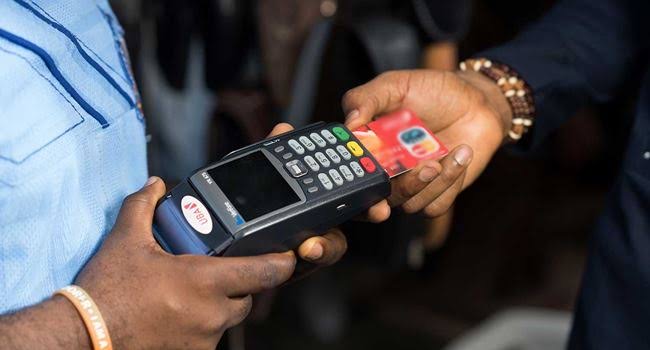The Nigeria Inter-Bank Settlement Systems (NIBSS) recently disclosed that Nigerians conducted electronic transactions amounting to a staggering N89.5 trillion through various electronic channels in July 2024. This represents an unprecedented high in monthly transaction values recorded on the NIBSS Instant Payment (NIP) platform.
The N89.5 trillion figure marks a significant milestone, reflecting an impressive 89% year-on-year increase compared to the N47.4 trillion recorded in the same month of 2023. This sharp rise underscores the growing reliance on electronic payments in Nigeria, as consumers and businesses alike increasingly embrace digital financial transactions.
The record-breaking performance in July contributed significantly to the cumulative value of electronic transactions in Nigeria for the year 2024. From January to July 2024, a total of N566.3 trillion worth of transactions were processed. This figure is just shy of the N600 trillion recorded for the entire year of 2023, with five months still left to contribute to this year’s total. The rapid growth suggests that Nigeria is on track to far surpass the previous year’s record, reflecting the ongoing shift towards a more cashless economy.

Additionally, the volume of NIP transactions has seen a notable surge. In July 2024, NIBSS processed 907 million transactions, up from the 743 million recorded in July 2023. This represents a 22% increase in transaction volume over the year, further highlighting the exponential growth in the adoption of electronic payment solutions.
The Impact of the CBN’s Cashless Policy
Industry experts attribute this rapid growth in e-payment transactions to the Central Bank of Nigeria’s (CBN) cashless policy, which has significantly limited the amount of physical cash that can be withdrawn from banks. The policy, which took effect on January 9, 2023, sets stringent withdrawal limits: individuals can withdraw no more than N500,000 per week, while corporate organizations have a weekly limit of N5 million.
A Lagos-based financial analyst, Mr. Adewale Adeoye, explained that this cash withdrawal limitation, combined with the reduced availability of physical cash in banks, has forced many Nigerians to shift to electronic payment methods. According to Adeoye, “The non-availability of cash in banks like it used to be has been pushing more Nigerians to embrace cashless payment.” He further elaborated that those who require cash have increasingly turned to Point of Sale (PoS) operators, using either their debit cards or electronic transfers to obtain physical cash.
Adeoye noted that the restrictions placed by banks are a driving factor in the surge of electronic payments. He explained, “If you enter a bank today to withdraw cash, they may tell you that you can’t collect more than N5,000 over the counter. So, you are forced to use ATMs, which in most cases are also short of cash. If all that fails, you start looking for PoS operators or you resort to doing mobile transfers.”
These conditions have contributed to a steady increase in the use of electronic payment methods, as customers increasingly rely on mobile banking apps, Unstructured Supplementary Service Data (USSD), PoS systems, and other digital financial tools to meet their transaction needs.
The Backbone of Nigeria’s Digital Payments
The NIBSS Instant Payments (NIP) platform, launched in 2011, has played a pivotal role in enabling the digital transformation of Nigeria’s financial system. NIP is an account-number-based, real-time inter-bank payment solution that ensures instant value is transferred to the beneficiary. Over the years, NIP has become the preferred platform for fund transfers in Nigeria’s financial industry, widely adopted by banks and accessible through various channels such as internet banking, mobile apps, USSD codes, PoS machines, and ATMs.
NIBSS has reported that Nigerian banks have increasingly integrated NIP into their digital offerings, making it easier for customers to perform a wide range of transactions. As a result, electronic payments have become more ubiquitous across the country, with consumers and businesses alike benefiting from the speed, convenience, and security of these digital financial services.
The Role of the CBN in Driving E-Payment Growth
The Central Bank of Nigeria’s (CBN) policies have been instrumental in the rapid growth of e-payment systems. Aside from the physical cash shortage experienced in early 2023, the revised cashless policy implemented by the CBN has further incentivized the use of electronic payments. By limiting the amount of cash that can be withdrawn from banks daily, the CBN has encouraged the adoption of digital payment methods, which has had a ripple effect on the entire financial system.
With more Nigerians becoming accustomed to using mobile banking apps, PoS machines, and USSD codes for transactions, the country is witnessing a significant shift towards a cashless economy. Financial analysts expect this trend to continue, particularly as more innovations in digital payment technologies are introduced and as consumer confidence in electronic payments grows.
As Nigeria continues on its path toward a more digitally-driven financial ecosystem, it is expected that electronic transaction volumes and values will continue to rise. The July 2024 NIP transaction data is a clear indication that the country’s cashless policy is yielding results, positioning Nigeria as a leader in digital financial inclusion within the region.
What Lies Ahead for Nigeria’s Cashless Future
Given the sustained growth in e-payment adoption, it is anticipated that Nigeria will continue to break records in electronic transaction volumes and values in the coming months. As the country’s financial infrastructure continues to evolve, the NIP platform will remain central to this transformation, supporting the government’s vision of a fully cashless economy. The rise of mobile banking, digital transfers, and alternative payment platforms are expected to drive further innovation in the financial services sector.
In conclusion, the significant rise in electronic transactions reflects the changing dynamics of Nigeria’s financial landscape. With the CBN’s policies promoting digital payments and NIBSS’s NIP platform providing the necessary infrastructure, Nigeria is well-positioned to continue its journey towards a more inclusive, efficient, and technologically advanced financial system.

































